Maintaining a healthy weight becomes increasingly important as we age. While weight management is often associated with younger adults, seniors face unique challenges that make it just as vital—if not more so. From slower metabolism and muscle loss to changes in appetite and activity levels, understanding how to balance weight while staying strong and energized is key to healthy aging.
In this guide, we’ll explore the best strategies for managing weight, staying active, and maintaining muscle and vitality well into your golden years.
Why Weight Management Matters for Seniors
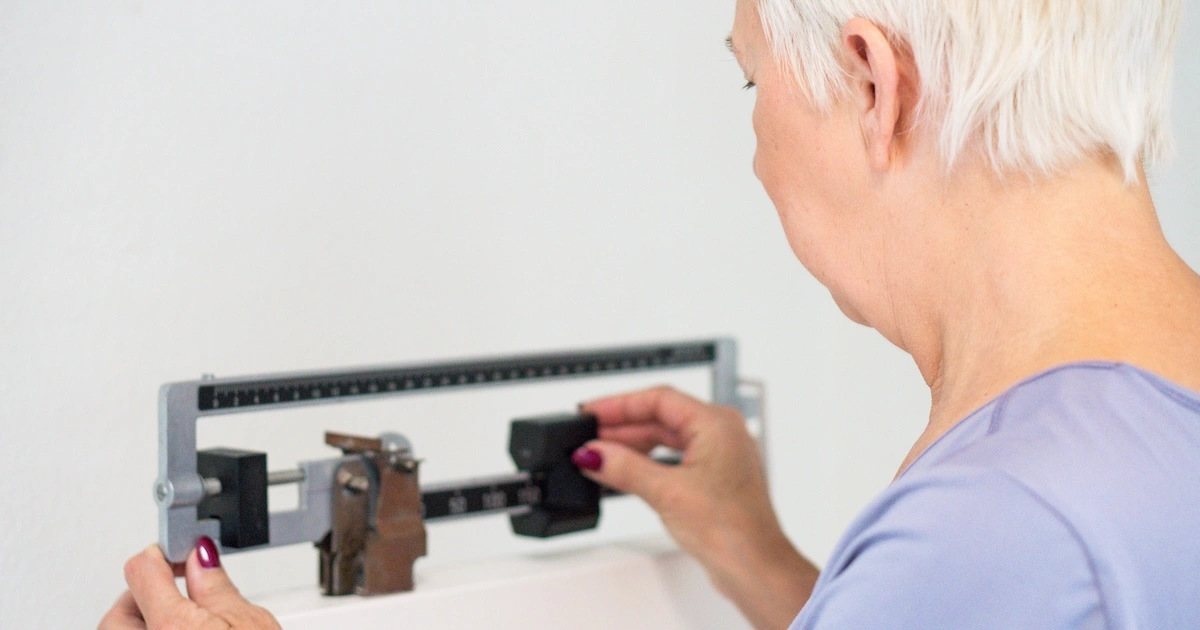
Aging brings about natural body changes, but maintaining a healthy weight can:
- Support mobility and independence by keeping joints and muscles strong.
- Reduce the risk of chronic illnesses like heart disease, diabetes, and arthritis.
- Boost energy levels and overall well-being.
- Improve cognitive function and mental health.
- Enhance sleep quality and reduce inflammation.
Keeping your weight in a healthy range isn’t about being thin—it’s about staying strong, healthy, and active for years to come.
Understanding Metabolism and Weight Changes After 60

One of the biggest challenges seniors face is a slowing metabolism. As we age:
- We naturally lose muscle mass, which burns fewer calories than fat.
- Hormonal changes can impact fat storage and energy levels.
- Appetite may decrease, leading to lower nutrient intake.
- Joint pain or mobility issues can reduce physical activity.
But the good news? With smart nutrition and the right activity level, weight management is possible—without restrictive dieting or excessive workouts.
Best Diet for Seniors: Nutrient-Dense Eating for a Healthy Weight
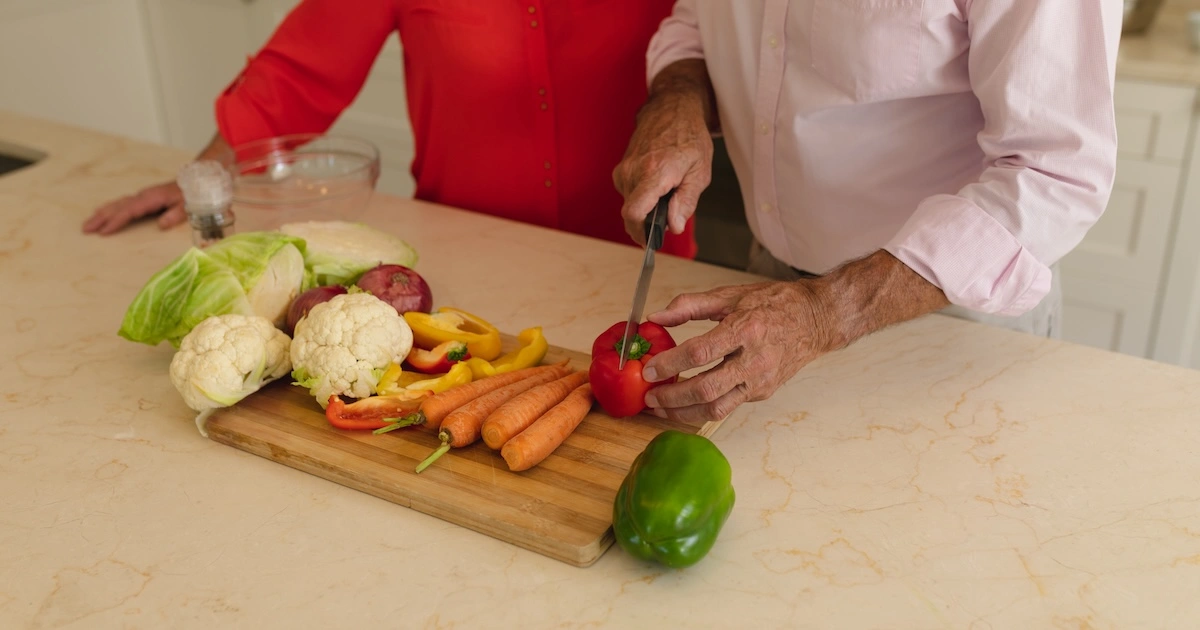
Rather than focusing on calorie restriction, seniors should emphasize nutrient-dense foods that fuel the body.
1. Prioritize Protein for Muscle Maintenance
- Choose lean proteins like chicken, fish, tofu, beans, and Greek yogurt.
- Incorporate eggs, nuts, and legumes into daily meals.
- Aim for 20-30 grams of protein per meal to preserve muscle.
2. Fill Your Plate with Fiber
- Fiber supports digestion and prevents weight gain by keeping you full longer.
- Include whole grains, fruits, vegetables, and legumes in your meals.
- Choose brown rice, oats, quinoa, and whole wheat bread over refined grains.
3. Stay Hydrated
- Dehydration can slow metabolism and increase cravings.
- Drink 6-8 glasses of water daily, herbal teas, or infused water.
- Enjoy water-rich foods like cucumbers, watermelon, and leafy greens.
4. Cut Back on Empty Calories
- Limit processed foods, sugary snacks, and excessive alcohol.
- Swap out soda for sparkling water and desserts for fruit-based treats.
- Enjoy healthy fats like avocado, olive oil, and nuts instead of fried foods.
Safe and Effective Exercises for Weight Management
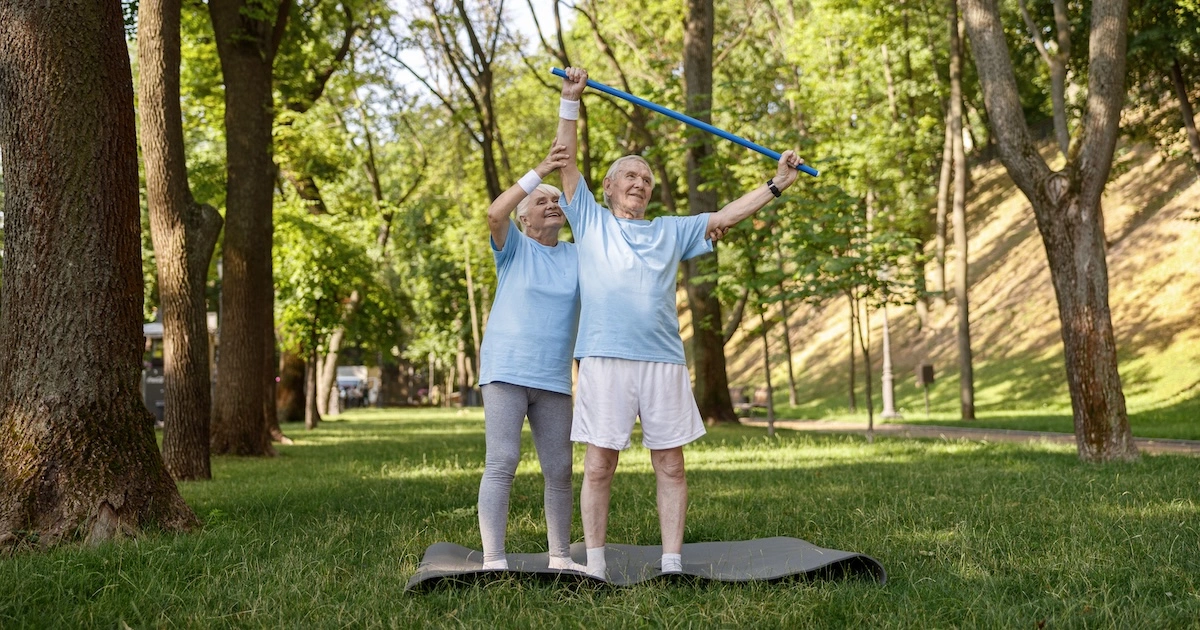
Exercise isn’t just about burning calories—it preserves muscle, boosts metabolism, and enhances mobility. Here are some of the best activities for seniors:
1. Strength Training for Muscle Retention
- Use light weights, resistance bands, or bodyweight exercises.
- Focus on squats, lunges, and seated leg lifts to strengthen lower body muscles.
- Try chair exercises or wall push-ups for gentle upper body strength.
2. Low-Impact Cardio for Heart Health
- Take daily walks for at least 30 minutes.
- Try water aerobics, swimming, or stationary cycling.
- Dance or join a senior fitness class to make movement fun.
3. Balance and Flexibility for Injury Prevention
- Practice yoga or Tai Chi to improve balance and core strength.
- Stretch before and after workouts to keep joints mobile.
- Do heel-to-toe walks or single-leg stands for better stability.
Portion Control and Mindful Eating: Eating Just Enough

As metabolism slows, portion control becomes crucial for weight management. Here’s how to eat the right amount without feeling deprived:
- Use smaller plates to prevent overeating.
- Eat slowly and listen to hunger cues.
- Avoid eating in front of the TV to focus on portion sizes.
- Divide meals into smaller portions throughout the day.
Managing Emotional Eating and Stress
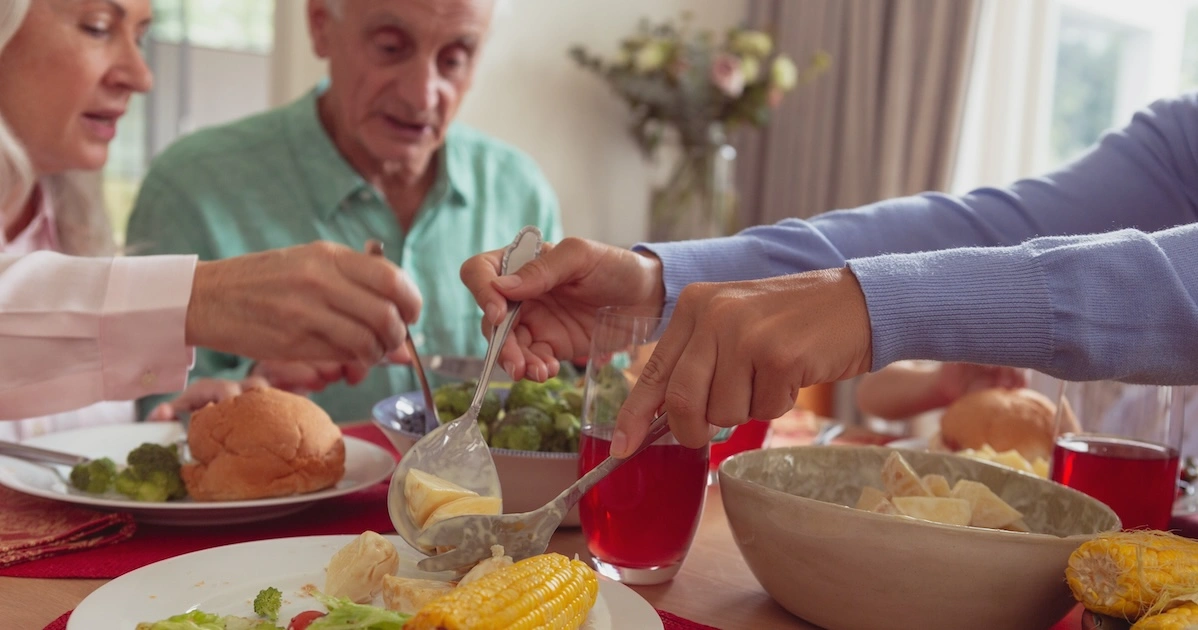
Many seniors turn to food for comfort—especially during stressful times. Emotional eating can lead to weight gain and poor food choices.
Tips for Controlling Emotional Eating:
- Identify triggers (boredom, stress, loneliness) and find healthier coping mechanisms.
- Stay socially connected—loneliness often leads to overeating.
- Engage in hobbies like gardening, painting, or volunteering to stay engaged.
- Practice mindfulness or meditation to manage stress in a healthy way.
Staying Motivated: Small Steps for Long-Term Success
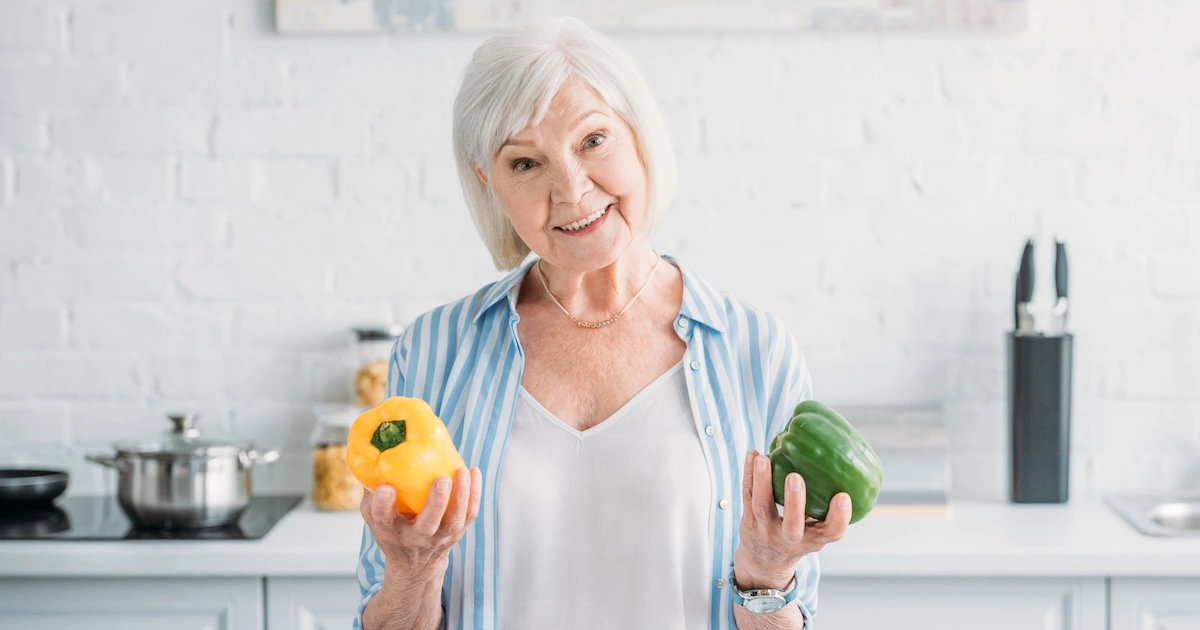
Sustainable weight management isn’t about quick fixes—it’s about small, daily choices that add up over time.
- Set realistic goals—focus on overall health, not just the number on the scale.
- Keep a food and activity journal to track progress.
- Celebrate non-scale victories like improved energy, better mobility, and strength gains.
- Find a support system—work with a friend, family member, or fitness group to stay accountable.
Final Thoughts: Embrace Healthy Aging with Confidence
Maintaining a healthy weight as a senior isn’t about perfection—it’s about balance, mindful eating, and staying active in a way that suits your lifestyle.
By choosing nutrient-rich foods, engaging in gentle exercise, managing stress, and staying consistent, you’ll build habits that keep you feeling strong, independent, and full of life.
What’s Next?
What small change can you make today? Whether it’s adding more protein, going for a walk, or practicing portion control, start with one step and build from there. Healthy aging is a lifelong journey—enjoy the process!













